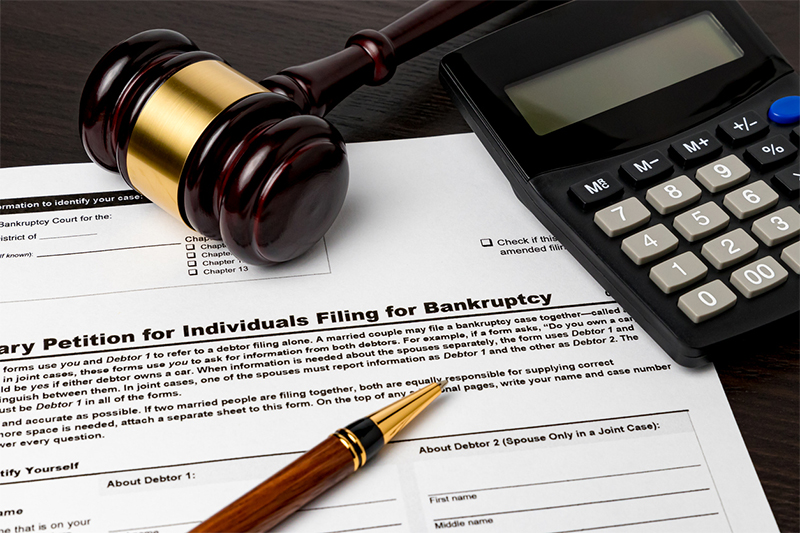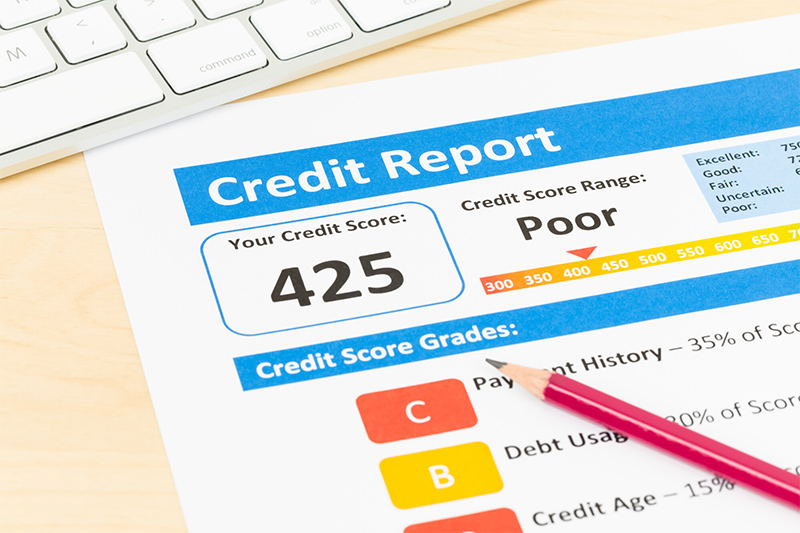What is Bankruptcy?
If you are wondering what bankruptcy really is, bankruptcy is a legal process designed to help individuals, businesses, or organizations get relief from their overwhelming debts by providing them with a fresh financial start.
It involves court proceedings where a person’s assets are evaluated and liquidated to pay off their debts.

How Does Bankruptcy Impact Your Credit Score?
Bankruptcy can significantly impact your credit score, leading to immediate and long-term negative consequences.
When you file for bankruptcy, your credit score will experience an immediate drop, which can be particularly pronounced for individuals with higher credit scores.
During and after bankruptcy, several factors come into play that influence your credit score. Payment history affects your credit score, and late payments or a history of missed payments can damage your credit even further.
Bankruptcy creates a public record that remains on your credit report for several years. This record serves as a red flag for future lenders and can make it challenging to access credit or obtain favorable terms.
Credit utilization, which refers to the amount of credit you use compared to your credit limits, is another factor that creditors consider. High credit utilization can negatively impact your credit score.
While bankruptcy can have a significant impact on your credit score, it is not the end of your credit journey. With disciplined financial habits and responsible credit use, you can start rebuilding your credit score over time.
Consulting with a bankruptcy attorney or credit counselor can help guide you in creating a payment plan or exploring credit-building options such as secured credit cards or credit builder loans.
Types of Bankruptcy and Filing Requirements
Bankruptcy provides individuals with the opportunity to alleviate their overwhelming financial burdens and start afresh. There are different types of bankruptcy, each with its specific requirements, including Chapter 7 and Chapter 13 bankruptcy.
Regardless of the bankruptcy type selected, individuals are required to undergo credit counseling within six months before filing. Filing for bankruptcy involves completing numerous forms, disclosing financial information, and paying filing fees.

Chapter 7 Bankruptcy
Chapter 7 bankruptcy can have a significant impact on a person’s credit score. This type of bankruptcy provides individuals with a clean slate by eliminating their debts, but it may require the liquidation of assets to pay off creditors.
When someone files for Chapter 7 bankruptcy, their credit score will likely experience a negative impact. Typically, a person’s credit score can decrease by 130-150 points after filing for bankruptcy.
This decrease is due to the negative marks associated with the bankruptcy filing and the potential discharge of debts.
Chapter 7 bankruptcy will remain on a person’s credit report for ten years from the filing date. During this time, lenders and creditors may view the bankruptcy as a significant credit risk, making it difficult to obtain new lines of credit or secure favorable terms.
It’s not all doom and gloom. After the bankruptcy discharge, individuals can take steps to rebuild their credit. This can involve making timely payments on any remaining debts, such as student loans or personal loans, as well as establishing new credit activity.
One way to start rebuilding credit after Chapter 7 bankruptcy is by obtaining a secured credit card. This type of card requires a cash deposit, which serves as collateral.
By making regular, on-time payments and keeping credit utilization low, individuals can demonstrate responsible credit behavior to future lenders.
While Chapter 7 bankruptcy may harm credit scores initially, eventually, it provides a fresh start by eliminating overwhelming debts.
With time and effort, individuals can improve their credit and regain financial stability.
Chapter 13 Bankruptcy
Chapter 13 Bankruptcy, also known as reorganization bankruptcy, is a legal option for individuals who want to establish a repayment plan to settle their debts.
Unlike Chapter 7, Bankruptcy, which involves the liquidation of assets to pay off creditors, Chapter 13 allows individuals to retain their assets while working with the court to create a manageable payment plan.
One of the key features of Chapter 13 Bankruptcy, is that it considers the regular wages earned by the individual.
This allows for a repayment plan that takes into account their ability to pay back part or all of the debt over a specific period of time, typically three to five years.
Another significant advantage of Chapter 13 Bankruptcy is that it will be automatically removed from the individual’s credit report after seven years.
Compared to the ten years for Chapter 7 Bankruptcy, this shorter timeframe can help individuals rebuild their credit more quickly.
Furthermore, Chapter 13 Bankruptcy provides a way to halt foreclosure proceedings, giving individuals the opportunity to keep their homes.
The court supervises the repayment plan, ensuring that the individual can afford their monthly payments and meet their obligations.

Factors that Affect Your Credit Score During and After a Bankruptcy
By being aware of factors that can impact your credit score and taking proactive steps, you can gradually rebuild your creditworthiness and regain access to credit.
Type of Bankruptcy
The type of bankruptcy you file for can have different consequences for your credit score. Chapter 7 bankruptcy, also known as liquidation bankruptcy, stays on your credit report for ten years.
Chapter 13 bankruptcy, which involves a repayment plan, remains on your credit report for seven years. Understanding the implications of each type can help you plan and manage your credit expectations post-bankruptcy.
Payment History
Your payment history is a critical factor in determining your credit score. Making timely payments is critical during and after bankruptcy.
Even with the negative impact of bankruptcy, consistently paying your bills on time shows lenders that you are responsible and can be trusted with credit in the future.
By creating a budget and prioritizing your financial obligations, you can maintain a positive payment history that will help rebuild your credit.

Credit Utilization
Credit utilization is the percentage of your available credit that you are currently using. Keeping your credit card balances low during and after bankruptcy is important for rebuilding your credit score.
Aim to use no more than 30% of your credit limit to demonstrate responsible credit usage and avoid appearing as a credit risk to future lenders.
Length of Credit History
The length of your credit history also contributes to your credit score. If you’ve had credit accounts for a long time and managed them responsibly before bankruptcy, it can help counterbalance the negative impact of the bankruptcy.
Focusing on rebuilding your credit post-bankruptcy becomes even more important if you have a relatively short credit history.

New Credit Accounts
Opening new credit accounts can help rebuild your credit score after bankruptcy. Be cautious and only apply for credit that you can manage responsibly.
Applying for too much credit too soon after bankruptcy can send a negative signal to potential lenders. Consider starting with a secured credit card or a credit builder loan, which can help establish positive credit activity and gradually rebuild your credit.
Public Records
During bankruptcy, public records are created and will remain on your credit report for a certain period. These records include bankruptcy filings, court judgments, tax liens, and other legal actions.
Keep an eye on and address any inaccuracies or discrepancies in your public records to ensure they do not negatively impact your credit score.

Our experienced bankruptcy attorneys at Frego Law can help you determine the best course of action and guide you through bankruptcy. Contact us today to learn more about how we can help.
Source:
[1] Chapter 7 – Bankruptcy Basics. (n.d.). United States Courts. https://www.uscourts.gov/services-forms/bankruptcy/bankruptcy-basics/chapter-7-bankruptcy-basics




